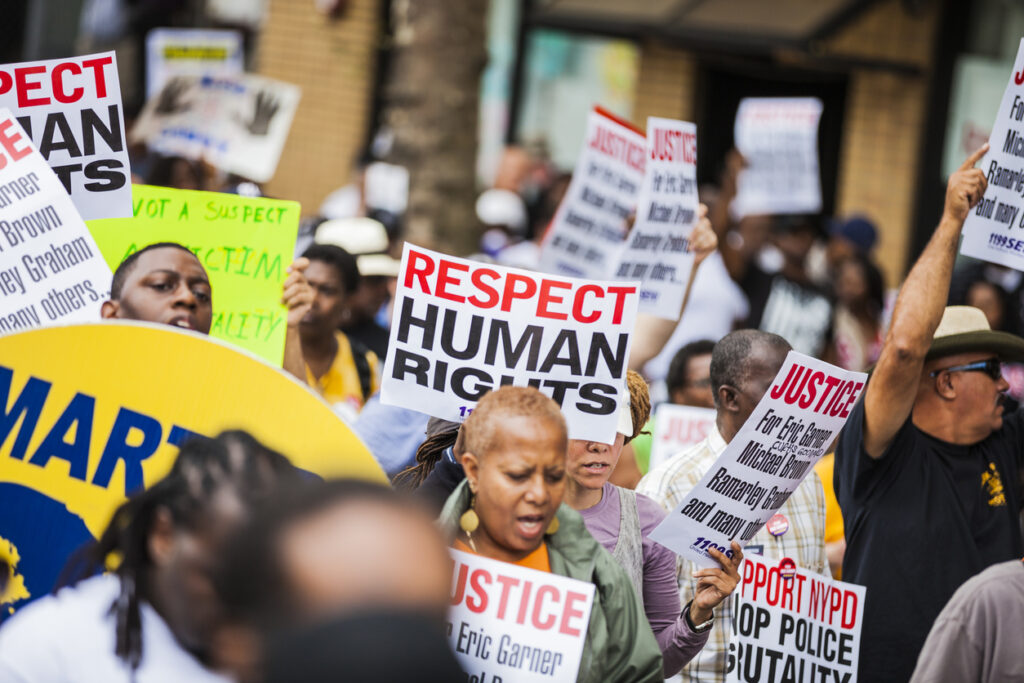At the start of every year, one thing we can always predict is the huge number of lists divining the hot issues in HR for the year ahead.
Reading the crop of blogs that have appeared in the past few weeks, it is hard to disagree with the consensus among influencers and experts that the impact of technology on jobs, learning and management will define the agenda for HR into the 2020s.
Puzzlingly, however, one pressing issue that rose to prominence in the last year is conspicuous in its absence: how HR should respond to the rise of employee activism.
Employee activism is the phenomenon of people who speak out for or against their employers.
For the likes of Google, Wayfair and Amazon – to name just a few – it is the employees who have chosen to speak out against them that is causing problems.
Organisations that fail to come up with an answer to employee activism will certainly find it harder to attract, hire and retain the people they need for the future.
In each case, groups of employees have taken against controversial management decisions, organised themselves to lobby for a change of direction and when this has not been forthcoming, publicised their disagreement and organised walkouts. The stories have attracted the attention of politicians and become globally negative issues damaging the reputation of these titans of industry.
Whether or not you are personally comfortable with the way these companies choose to work is a subjective decision for any individual employee and their conscience.
Many employees feel a disconnect between what their employers claim and what they do, however. Imagine you are an employee who signs up to a company whose CSR policy says “strong communities and good business are inextricably linked” (Wayfair), whose corporate code of conduct says employees must “do the right thing” (Google) or that “is committed to and invested in sustainability because it’s a win all round”(Amazon). This gap in expectation can make many feel misled and create bigger, worse reactions.
The challenge of dealing with activism from disenchanted employees is not just confined to American firms and is only expected to grow.
A recent study from the global communications firm Weber Shandwick found that four in ten workers had spoken up to support or criticise employers’ actions. Looking forward, the Future of Work report from law firm Herbert Smith Freehills found 80% of companies expect a rise in employee activism.
Why should this be a matter for HR?
If employees feel disillusioned with a business and how its managers are running it, this has to be an issue for HR to understand and unpick.
Indeed, according to the Future of Work report, the biggest causes of activism are things that fall squarely within HR’s remit, namely: a lack of diversity, the status of casual workers, pay and benefits. It’s not just ethical considerations about whether the company behaves in the way it says it will.
Then there is the fact employees are no longer happy to simply see their employers avoid taking responsibility or action for key societal issues like plastics, pollution, modern slavery and opaque supply chains. Three quarters of 18-34 year-olds – an age cohort that now dominates our workforce – say they expect their employer to take a stand on important issues facing their country and constitutional rights, according to Glassdoor.
It is clear then, that organisations that fail to come up with an answer to employee activism will certainly find it harder to attract, hire and retain the people they need for the future. So how should HR deal with this?
Communication is key
This should start with the question: how does my organisation need to be managed – from the front line up to the C Suite – so that it can listen to and address ethical concerns from employees before they spill over into the public domain? This will require organisations to be better at listening, letting people speak up on what they do and don’t agree with in the direction of the company. This will require a move away from simply surveying staff about their general confidence in the leadership, to the creation of ethics boards and ways of feeding back without fear of retribution.
Transparency is important too. Today, any company information can be made public on social media network or other digital channel. Organisations need to be prepared for policy and practice to be scrutinised in the open, moving on from a default of secrecy to openness. As the recent BBC equal pay claim reminds us, opaque practice in the way people are paid and managed has a way of finding its way into the public domain and costing organisations dearly.
HR should also reconsider how far its responsibility for people and ethical business practice reaches through the supply chain. Currently, the way that contractors, outsourcers, agents and other partners treat their people is typically led by procurement.
For consumers and employees alike, these are still the people your organisation chooses to work for them. With the risk of modern slavery and abuse of employee rights in the majority of today’s supply chains, this is an area that at the very least should be challenged, if not championed, by HR.
[cm_form form_id=’cm_65a14c3f5da64′]
Employee activism is powerful and significant, but it shouldn’t simply be seen through the prism of risk management. When you think about how much energy and courage it takes for employees to speak out and act, there is a force for good that can benefit every business.
The prize for HR is to channel that energy, courage and conviction so that it improves performance, engagement and retention. This can only happen if employees are confident that their values are respected and they feel part of the change they want to see.
As regulators, investors and customers are demanding better social and environmental outcomes, HR can become the champions in galvanising employees to come up with new ideas and help deliver these ambitious targets.
Interested in this topic? Read Why senior leaders don’t listen to activist employees.







